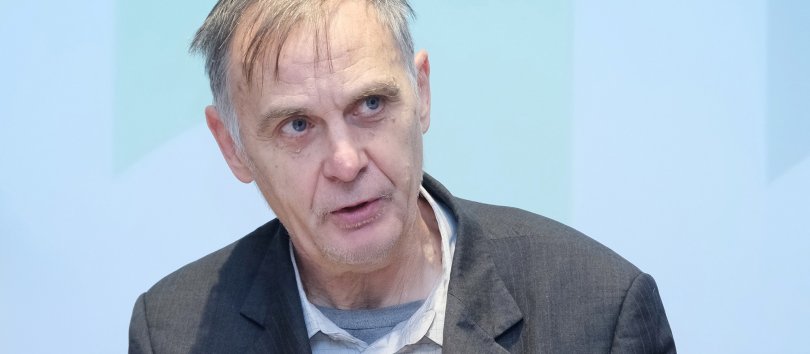
“We need to reinforce EU's commitment to support skills development”, Frank Hess, Head of Cooperation at the EU Delegation in Armenia
Armenia is undergoing a transformative journey—one that blends aspirations for European integration with deep-rooted traditions and a dynamic private sector. Frank Hess, Head of Cooperation at the EU Delegation in Armenia, has been at the forefront of this process for the past four years. We interviewed him about the challenges and opportunities shaping Armenia’s educational landscape.
A country in transition
Reflecting on his tenure in Armenia, Frank describes the experience as positive yet filled with complexities. “Armenia is trying to come closer to the EU, and that’s something we want to support,” he affirms.
But Armenia’s journey has been far from smooth. From the aftermath of the 2020 Nagorno-Karabakh conflict to the mass exodus of ethnic Armenians from the region in 2023, the country has faced profound humanitarian and geopolitical challenges. Despite these hardships, the focus remains on development, with education playing a crucial role in shaping Armenia’s future.
The Role of Education: Challenges and Priorities
One of the biggest challenges in Armenian education, according to Frank, is the limited involvement of the private sector. Unlike in his home country, Germany, where vocational education thrives through strong public-private partnerships, Armenia lacks a culture of collaboration between businesses and educational institutions. This disconnect, particularly evident in vocational education, creates gaps that must be addressed to better prepare students for the labour market.
“The private sector often takes over responsibilities that should ideally be handled by the education system, especially in IT,” Frank explains.
Strengthening cooperation between industry and education is essential for fostering sustainable economic growth.
How the European Training Foundation can help
The European Training Foundation (ETF) is an active player when it comes to education reform in Armenia. To enhance this partnership, Frank emphasises two key areas: synchronisation of efforts and the provision of research-driven, practical solutions. “ETF is already doing a good job,” he notes. “What matters is ensuring alignment with EU delegation priorities while bringing in global best practices and evidence-based recommendations.”
The ETF’s extensive experience in multiple countries provides Armenia with access to innovative solutions that local stakeholders might not yet be aware of. Additionally, the ETF’s role in policy advice and capacity-building can further empower Armenia’s education sector, helping national authorities implement effective reforms.
Digital vs. Green Transition: A tale of two priorities
When it comes to innovation, Armenia exhibits a strong inclination towards digital transformation but lags behind in environmental awareness. Frank observes that while the country boasts a thriving IT sector, environmental concerns remain secondary. “There is a lot of interest in digital,” he says. “But green initiatives don’t get the same level of attention.”
A stark example is Yerevan’s air quality—an issue widely acknowledged but rarely addressed. “People know the air is bad, but they don’t fully grasp the long-term consequences, especially for children,” he explains. Integrating environmental education into school curricula is one way to raise awareness and drive change. To this end, the EU Delegation has embedded environmental projects into its budget support for schools, ensuring that students engage with sustainability topics from an early age.
The future of AI in Armenian education
Armenia’s strong digital sector presents both challenges and opportunities, particularly with the rise of artificial intelligence (AI). Frank acknowledges the potential of AI in education but highlights the need for adaptability. “Younger teachers will integrate AI with ease, but for older generations, it may be more difficult,” he says. However, he remains optimistic, viewing AI not as a threat but as a transformation that, if managed well, could position Armenia as a regional leader in digital education.
Looking ahead: Strengthening the EU-Armenia partnership
As Armenia continues its development journey, education remains central to its progress. Frank envisions a stronger link between education and economic competitiveness, with the ETF playing a critical role in shaping policies that align with the country’s growth strategy. “What can be done to improve skills and knowledge while ensuring Armenia stays on its development path?” he asks. “ETF’s research and expertise can provide valuable answers.”
Additionally, addressing broader societal challenges—such as climate change and refugee integration—will be essential in the years ahead. “These are challenges we must tackle together as the European Union,” Frank concludes.
Through sustained cooperation between the EU Delegation, ETF, and Armenian institutions, the hope is that education will not only empower individuals but also drive the nation towards a more resilient and inclusive future.
Did you like this article? If you would like to be notified when new content like this is published, subscribe to receive our email alerts.